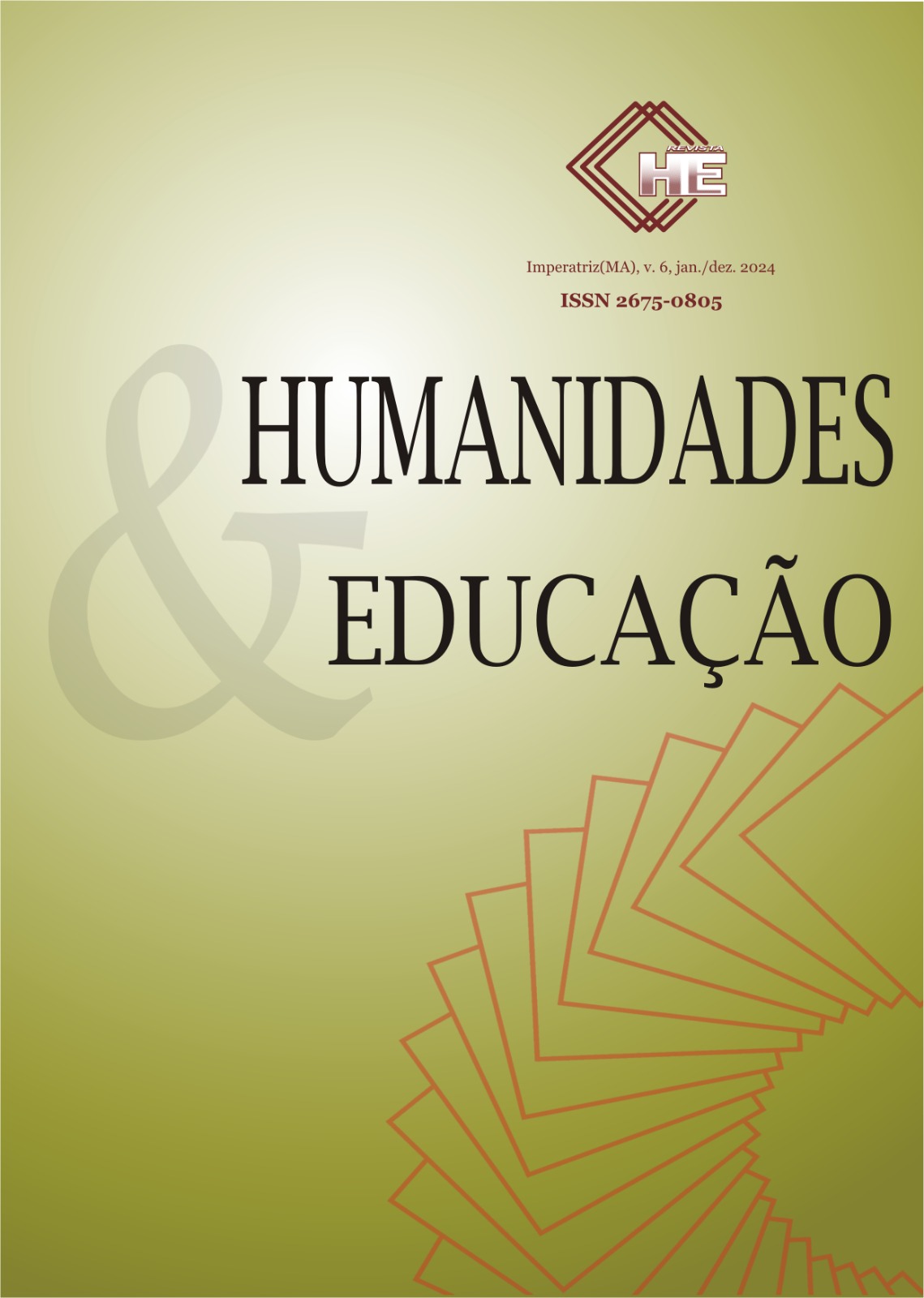A justificação do Sitema de Proteção CEP - Conep frente aos principais desafios de pesquisas com indígenas: uma análise a partir da jusfilosofia de Miguel Reale
DOI :
https://doi.org/10.18764/2675-0805v6.2024.3Mots-clés :
Ética , Sistema de Proteção, Pesquisa , Indígenas , Miguel RealeRésumé
Um dos capítulos importantes da proteção da dignidade do sujeito de pesquisa encontra-se na legislação que ampara as populações indígenas. A razão é que esse grupo é vulnerável e pode ser prejudicado de várias formas, inclusive quando não entende corretamente a finalidade das pesquisas de que participa. O artigo apresenta exemplos de violação do compromisso ético de pesquisadores com indígenas e comenta as razões pelas quais os procedimentos usados devem ser evitados. Trata-se de problema moral aos quais se aplicam discussões normativas e teóricas tendo como pano de fundo a jusfilosofia de Miguel Reale. A referência ética é fundamental nesses casos como resguardo racional de procedimentos utilizados em pesquisas científicas. O artigo se interessa secundariamente pelas implicações ecológicas, tema atual e relevante em face das mudanças climáticas. A justificativa teórica dos procedimentos éticos foi construída a partir das noções de dignidade pessoal e de cultura de Miguel Reale. Para ele, a vida humana é o valor supremo a ser assegurado pelos instrumentos jurídicos e a noção de cultura como expressão de valor vincula-se ao próprio homem que se apresenta como o ser que se caracteriza pelas possibilidades contempladas no seu dever-ser, isto é, porque é um ente que se guia por valores culturalmente estabelecidos sendo ele o criador e a criatura da cultura.
Téléchargements
Références
BARRETO, Tobias. Estudos de filosofia. 2. ed., São Paulo: Grijalbo; Brasília: INL, 1977. 388 p.
BRASIL. Brasil registra 274 línguas indígenas diferentes faladas por 305 etnias. GOV.BR. Publicado em 27/10/2022. Disponível em https://www.gov.br/funai/pt-br/assuntos/ noticias/2022-02/ brasil-registra-274-linguas-indigenas-diferentes-faladas-por-305-etnias
BRASIL. Constituição. Constituição da República Federativa do Brasil. Brasília, DF: Senado Federal: Centro Gráfico, 1988.
BRASIL. Decreto nº 10.088, de 05 de novembro de 2018. Consolida atos normativos editados pelo Poder Executivo Federal que dispõem sobre a promulgação de convenções e recomendações da Organização Internacional do Trabalho - OIT ratificadas pela República Federativa do Brasil. Disponível em https://www.planalto.gov.br/ccivil_03/_ato2019-2022/2019/decreto/d10088.htm
BRASIL. Decreto nº 10.932, de 10 de janeiro de 2022. Promulga a Convenção Interamericana contra o Racismo, a Discriminação Racial e Formas Correlatas de Intolerância, firmado pela República Federativa do Brasil, na Guatemala, em 5 de junho de 2013. Disponível em: https://www.planalto.gov.br/ccivil_03/_Ato2019-2022/2022/Decreto/D10932.htm
BRASIL. Lei nº 13.105, de 16 de março de 2015. Institui o Código de Processo Civil. Diário Oficial da. União, Brasília, 17 jan. 1973.
BRASIL. Lei nº 13.709, de 14 de agosto de 2018. Lei Geral de Proteção de Dados Pessoais (LGPD). Brasília, DF: Presidência da República, [2020].
BRASIL. Manual de Comunicação da SECOM. Indígena/Etnia. SENADO FEDERAL. 2023. Disponível em: https://www12.senado.leg.br/manualdecomunicacao/estilos/indio#:~:text=Para%20designar%20o%20indiv%C3%ADduo%2C%20use,N%C3%A3o%20use%20Dia%20do%20%C3%8Dndio. Acesso em 25 de out. 2023.
BRASIL. Missão Yanomami - Informe Semanal 21. Publicado em 25/07/2023. Disponível em https://www.gov.br/saude/pt-br/composicao/svsa/resposta-a-emergencias/coes/coe-yanomami/informe-diario/missao-yanomami-informe-semanal-21.pdf/view
BRASIL. Ministério da Saúde. Conselho Nacional de Saúde. Resolução nº 304 DE 09 DE AGOSTO DE 2000, https://www.uffs.edu.br/pastas-ocultas/bd/pro-reitoria-de-pesquisa-e- pos-graducao/repositorio-de-arquivos/arquivos-do-cep/resolucao-no-304-de-09-de-agosto-de-2000
BRASIL. Ministério da Saúde. Conselho Nacional de Saúde. Resolução nº 563, de 10 de novembro de 2017. Disponível em:<https://conselho.saude.gov.br/resolucoes/2017/Reso563.pdf>
BRASIL. Ministério da Saúde. Conselho Nacional de Saúde. Resolução n. 466, de 12 de dezembro de 2012. Disponível em: https://conselho.saude.gov.br/resolucoes/2012/Reso466.pdf
BRASIL. FUNAI. Instrução Normativa nº 01/95PRESI. Normas que Disciplinam o Ingresso em Terras Indígenas com Finalidade de Desenvolver Pesquisa Científica. 29 de nov. 1995. Disponível em <https://www.ufrgs.br/bioetica/funai.htm> Acesso em 26 jun. 2023.
CARVALHO, J. M.; MELO, R. M. P. S.; SANTOS, V. E. Os problemas da pesquisa com seres humanos nas sociedades subdesenvolvidas: contributos de Miguel Reale para examinar as obrigações e limitações éticas. Revista Humanidades & Educação, Imperatriz(MA), p. 27–39, 2023. DOI: 10.18764/2675-0805v4n7.2022.8. Disponível em: http://periodicoseletronicos.ufma.br/index.php/humanidadeseeducacao /article/view/20142. Acesso em: 2 set. 2023.
CARVALHO, José Mauricio de. O homem e a filosofia. 3. ed., Porto Alegre: MKS, 2018. 338 p.
CHAGNON, N. Nobres Selvagens: Minha minha vida entre duas tribos perigosas: Os Yanomami e os Antropólogos. Editora Três Estrelas, 2015. 608 p.
COIMBRA JÚNIOR, C.E; SANTOS, R.V. Ética e pesquisa biomédica em sociedades indígenas no Brasil. Cadernos de Saúde Pública. Cad. Saúde Pública, Rio de Janeiro, 12(3):417-422, jul-set 1996. Disponível<https://www.scielosp.org/pdf/csp/v12n3/0268.
CORIELL INSTITUTE FOR MEDICAL RESEARCH. Our Research. Disponível em https://catalog.coriell.org/1/Research/Overview
DINIZ, Débora. Avaliação ética em pesquisa social: o caso do sangue Yanomami. Revista Bioética, Brasília, v. 15, n. 2, p. 284-97, 2007. Disponível em: <http://revistabioetica.cfm.org.br/index.php/revista_bioetica/article/viewFile/48/51>.
GAZETA DO POVO. Venda de sangue revolta tribos no Brasil. Gazeta do Povo. Publicado em 21/06/2007. Disponível em: https://www.gazetadopovo.com.br/
mundo/vendadesanguerevoltatribosnobrasilaireumiph5mrg6lq7a7cn6tse/
MEDEIROS, M. Desnutrição matou 345 indígenas no Brasil nos últimos quatro anos.
CORREIO BRASILIENSE. Publicado em 29/01/2023. Disponível em https://www.correiobraziliense.com.br/brasil/2023/01/5069702-desnutricao-matou-345-indigenas-no-brasil-nos-ultimos-quatro-anos.html.
NAÇÕES UNIDAS. Declaração das Nações Unidas sobre os Direitos dos Povos Indígenas. UNIC/ Rio/ 023 - Mar. 2008. ACNUR. Acesso em: https://www.acnur.org/fileadmin/Documentos/portugues/BDL/Declaracao_das_Nacoes_Unidas_sobre_os_Direitos_dos_Povos_Indigenas.pdf.
ORTEGA Y GASSET, José. Misión del bibliotecario. p. 207-234. Obras Completas. v. V, Madrid: Alianza, 1994.
PAIM, Antônio. Problemática do culturalismo. Porto Alegre: EDIPUCRS, 1995. 196 p.
REALE, Miguel. Experiência e cultura. São Paulo: Grijalbo, 1977. 285 p.
REALE, Miguel. Introdução à Filosofia. São Paulo: Saraiva, 1989. 269 p.
REALE, Miguel. Experiência e cultura. 2. ed., Campinas: Bookseller, 2000. 339 p.
SANTOS, R.V; COIMBRA JÚNIOR, C.E. Vende-se sangue de índio suruí e caritiana. O Globo, Opinião, p. 7. 09 de Mai de 2005. Disponível em: https://acervo.socioambiental.org/acervo/noticias/vende-se-sangue-de-indio-surui-e-caritiana. Acesso em 26 jun. 2023.
THEODORO JÚNIOR, H. Curso de direito processual civil, volume 1. Teoria geral do direito processual civil, processo de conhecimento, procedimento comum – 63. ed. – Rio de Janeiro: Forense, 2022
VANDER VELDEN, F. F. Corpos que sofrem: uma interpretação karitiana dos eventos de coleta de seu sangue. Documento de Trabalho - CESIR/Unir/ENSP, Porto Velho; Rio de Janeiro, v. 1, n.12, p. 3-42, set. 2005. Acesso em http://www.cesir.unir.br/pdfs/doc12.pdf










